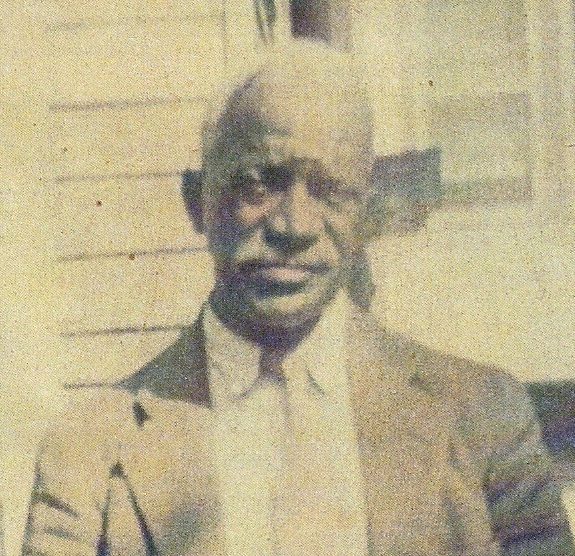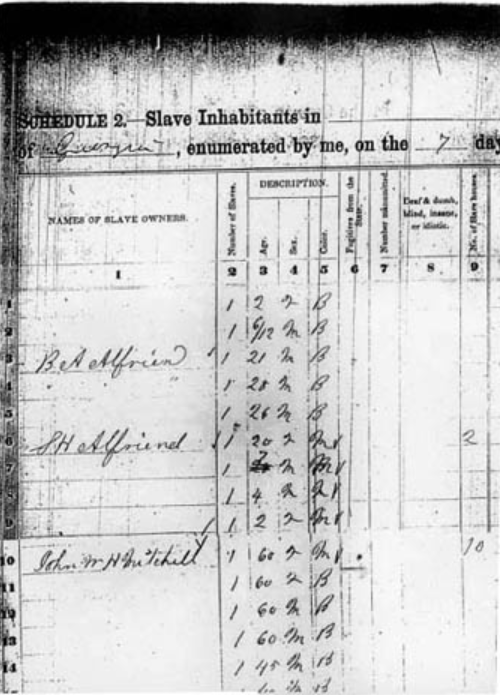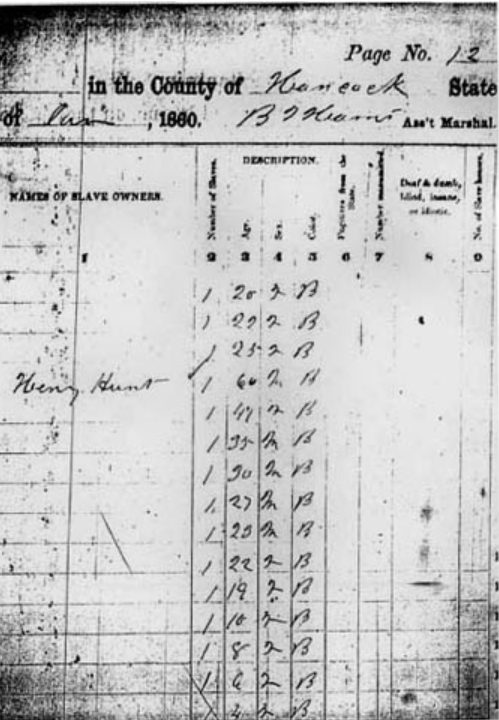Last month, business reporter Ben Bartenstein shared this Twitter thread about the systematic effort that he and his colleagues at Bloomberg embarked upon to ensure that their stories incorporated quotes and perspectives from women experts, instead of relying on the usual (typically white) male suspects. The thread is instructive both because of he lays out the steps of his process and his results, and because of its implications for institutions looking to translate their stated commitments to diversity into a deeply rooted cultural practice. What follows are notes on Bartenstein’s thread that I plan to use in my classes next semester.
First, here’s a link to the thread:
Half of the sources I quoted this year for @business were women. That’s 337 in total, or about one a day. Unfortunately, it's an anomaly in journalism & something I've failed at miserably in the past. Here’s how I got there & why I believe it improved my reporting:
— Ben Bartenstein (@BenBartenstein) December 27, 2018
The process Bartenstein laid out had several important components that can be broadly adopted in newsrooms and classrooms:
- His company had a stated commitment to diversity.
- He established a baseline by reviewing his stories in the previous year.
- Working with colleagues, he researched the problem and found that in fact that they were ignoring many of the women experts in their fields.
- He and his colleagues developed relationships with these sources and their company initiated a training program to help these experts become comfortable on television.
- He gave his management monthly updates.
- In the spirit of continuous improvement, he has established new goals and benchmarks for the coming year.
Implications for journalism education
I can easily see this being adapted for journalism education programs and campus media, where there are analogous problems. Predominantly white campuses often lack diverse staffs. Part of the goal of undergraduate journalism education and campus media organizations is to help cub reporters learn to think more broadly and systematically about sources, instead of relying on their personal networks and cultural assumptions. That’s a major goal of undergraduate education, generally.
Future research and resources
Bartenstein and his colleagues built their own database of diverse sources, perhaps because their beat is specialized. But his thread did make make me wonder what use journalists are making of the various resources that have been created over the years to help journalists find and identify diverse sources. Perhaps that will be a future research project.
In the meantime, I’ve started a Google spreadsheet of resources for educators looking to help students establish good habits in diverse sourcing. Please feel free to contribute.



Ready to scream
theprisonerswife August 12, 2009 – 4:56pm
Like the last commenter, I usually stick to personal issues (or those I can easily understand), but this health care debate is making me frustrated. After a recent trip to the ER with my son, i HAD to jump into the debate (would love your POV. Notes from the ER http://bit.ly/4eXUbR).
i have health insurance, very good insurance (that i don’t pay a dime for. i’m a teacher), but it’s contingent on my job (and my union’s ability to keep insurance as apart of our contract). Why our health coverage can’t be TRULY picked BY us (i.e. like we pick car insurance) is beyond me. If there were a public option , this will go a long way to not only insure MORE people (which, is necessary), but to also give us more choices.
I think that the fevered response over Obama’s health care (you know, all those people yelling & screaming @ town hall mtgs), has a lot to do with the fact that people STILL can’t get over our President is Black. I really believe if George Bush had of presented these ideas, people would be more receptive. I say this because the majority of the people i see in SUCH opposition aren’t minorities. Where is the voice or opinion of non-white people?
I also find it ironic that the same people who want the government to “stay out of their health care” are the same people who rely on Medicare & Social Security. Seriously?
The Dems need a better PR machine. Right now they are getting beaten by the politics of fear & ignorance.
~~Gimme Love: http://theprisonerswife.blogspot.com
In disbelief over the racism card being played in this context
NOfreelunch August 13, 2009 – 3:44pm
Therprisonerswife, have you actually attended any of these town halls? I have attended one and tried to attend another that was too crowded for me to get in. But what I saw at one included a black man who did not agree with the proposed plan and made it clear with his words and actions, all peaceful. Then a group of black people who were in favor of the plan were incensed that the first black man wasn’t “falling into step” with the way he was “supposed” to think, according to them. THEY (the supporters of the plan) became violent, profane and abusive to the man who was NOT a supporter. So there’s a few “non-white” people’s opinions for you that I’ve seen and heard personally.
As a white person, I am deeply offended and angry at your assertion that simply because I may not agree with the proposed plan or certain aspects of it, it’s because I “STILL can’t get over our president is black.” That is judgmental, divisive and plain wrong on so many levels it boggles my mind. In fact, the ONLY thing I truly like about this President thus far IS his color. I certainly haven’t been able to support any major direction change, economic policy or “stimulus” that he’s pushed through, all without the accountability , transparency and time to consider and read these bills he promised so many times. President Obama and some members of Congress are the ones fear mongering while trying to jam these bills through without even the Congress having time to fully read, craft, and debate over reforms on which people can reach some sort of a carefully thought out compromise. This is our health and our life and death, not something that we should just follow “lock step” on as it is quickly shoved down our throats. And if we bother to oppose some things we think are wrong or to *gasp* think independently, we are accused by people like you as being racist, or by Nancy Pelosi as being a part of some kind of organized violent mobs that are trying to impede progress? You have to be kidding me. Do you know how many people of all colors who were in opposition to this at the Town Halls were elderly and even nearly incapacitated? “Violent mobs” of octogenarians and handicapped people? What a joke. It says a lot to me about how far some of the most powerful people on the left are willing to go (and lie if necessary) to vilify anyone who is not in agreement with their policies. If people didn’t want progress and weren’t concerned about the issue, why would they bother to take the huge amount of time and effort it takes to come to these town halls trying to get information and make their voices heard?
You call this “Obama’s health care.” You say it’s because he’s black that people aren’t swallowing it like a spoonful of sugar. Well have you ever bothered to consider that it’s not Obama’s plan at all: it’s the same, tired socialized medicine concept that is being used by other countries that has marginalized health care in myriad ways most Americans aren’t even aware of and thankfully have not yet had to be subjected to. You talk about making choices. Don’t you understand that under a government (socialized) plan so many of those choices and medical care options will be taken away? Right now people from other countries with “Obama care” medicine systems are luckily able to come to the United States to get the medical care they sometimes desperately need and are made to wait for, for sometimes years at a time. Wait until America goes that same way and you will see many of your precious health choices that you have now with your admittedly good plan dissolve in time while someone decides what drugs will be available for certain conditions, when you can have an MRI or a CT scan that will put your frightened mind at ease, when and if you can choose and have your own doctor and what is “elective” surgery or not.
It has been tried in other countries. Their systems are below the levels of excellence and freedom and choices that ours provides. You call people that are not in favor of the plan “ignorant” and “fearful.” Well some of my opinions are based on personal accounts of health care in other countries given to me by close friends and family. Some are based on things that I’ve personally witnessed regarding health care in other countries. Coloring my “ignorance” are heartfelt, passionate opinions from health care providers and physicians from other countries who still do not consider our health care system irretrievably broken. Health care reform? Absolutely. Let’s rip our system apart, get down to the “nitty gritty” and debate, craft and mold it until we have it working better, less costly and more fair. Sacrificing our system altogether for a type that is going to marginalize and destroy competitive innovation and medical excellence that our (admittedly flawed) system has now is not the answer. Not only is it not the answer, but for you to say that I’m racist, ignorant and afraid for believing so is, to me, despicable.
In my opinion it is people like you on the other side of the argument that group the people who are not in favor of such a system into stereotypes and slurs and derogatory portraits that are only contributing to (and sometimes generating) the anger being displayed in these Town Hall meetings.
Respectfully
dianaelee August 14, 2009 – 6:21am
Obviously not everyone opposed to the President’s reform ideas is a racist, but it is disengenuous to ignore the racism that underlies some of the comments lamenting what is happening to our country, particularly when an albeit small, but alarmingly vocal minority don’t even believe he is qualified to be President because he was born in Hawaii.
Racism no longer tends to be overt. Instead, the message comes through loud & clear through particular attitudes and behaviors that reveal these views.
I offer up Glenn Beck as one prime example of this attitude.
Visit me at Somebody Heal Me: The Musings of a Chronic Migraineur
Follow me on Twitter @somebodyhealme